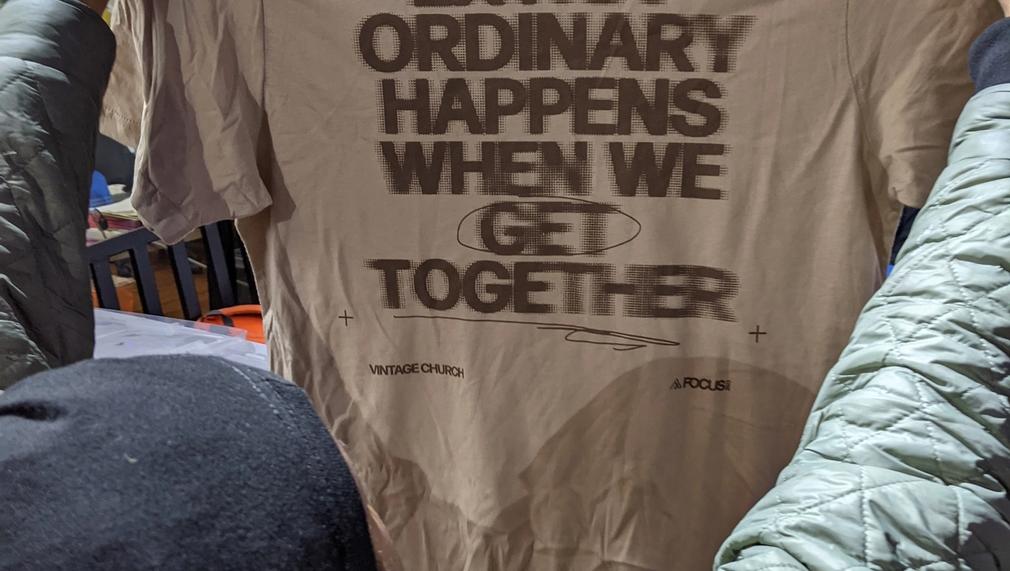Community dialogues with housed and unhoused neighbors
With over 75,000 people unhoused in LA County, we know that we need housing solutions. And while there is a will to expand housing, there is resistance when it comes to housing in “our’ neighborhood. Harmful stigmas cause isolation and harm for our unhoused neighbors, so we need to change the public mindset. UHRI aims to expand its community dialogues between people with and without lived experience of homelessness to dispel myths and encourage everyone to take part in solutions.

What is the primary issue area that your application will impact?
Affordable housing and homelessness
In what stage of innovation is this project, program, or initiative?
Expand existing project, program, or initiative (expanding and continuing ongoing, successful work)
What is your understanding of the issue that you are seeking to address?
When will we all feel part of the LA community? Over 75,000 people are unhoused in LA County, including more than 50,000 unsheltered households. Providing long term housing with wraparound services helps people stabilize and remain housed, yet we are evicting people at alarming rates–more than 40,000 in LA County this year. 90% of landlords give only 3 days notice to vacate. Many Angelenos are disproportionately impacted by this crisis due to systemic issues like income and racial inequality. Voters have opted for housing solutions for our most vulnerable neighbors, yet neighborhoods routinely push back when programs are too close to home. Neighborhood apps air harmful myths and tropes about unhoused people, promoting fear and hostility, putting people at greater risk for their safety. We must interrupt these patterns and build connections with our unhoused neighbors to work together. UHRI aims to do so by expanding a successful dialogue model countywide.
Describe the project, program, or initiative this grant will support to address the issue.
Since 2016, UHRI has held programming to bring neighbors together to connect, find common ground and commit to changemaking. We have seen firsthand that when we join together, break bread, and discuss issues directly, people deepen their understanding of issues and act to find solutions within their power. In 2019 we invited community stakeholders (city officials, librarians, church congregations, etc) to join their housed and unhoused neighbors in dialogues on homelessness. We piloted a series that bridged respectful communication with listening and learning sessions, always with participants with lived expertise in the room. After brainstorming together, we invited local speakers from across LA County to share their personal or organizational efforts and needs and held open dialogue together to answer questions, unpack biases, and explore ways to get more involved. Each time we gathered, we shifted our assumptions and understanding of homelessness. As a result, participants joined local programs as volunteers, became advocates, or identified concrete ways to assist their neighbors. Some helped our unhoused participants find homes. Building on these early successes, UHRI aims to scale up reach each Service Provider Area (SPA) in LA County, train local neighbors with/without lived expertise to facilitate dialogues, and schedule regular community sessions with local stakeholders. The goal is that community dialogues on homelessness become fixtures in every community calendar.
Describe how Los Angeles County will be different if your work is successful.
Our scalable approach, proven to open hearts and shift attitudes and understanding about the needs of unhoused neighbors, addresses the personal, structural and systemic issues that perpetuate housing insecurity. Our facilitators build empathy and awareness of our own connections to harmful systems, including discrimination against our neighbors, avoiding difficult conversations, or thinking creatively about how we can contribute to change. Imagine landlords and employers asking more often: Who am I hiring, renting to, paying, or charging? How are my choices interconnected with my neighbors and their needs? Using the train the trainer model, we will create a network of facilitators who can host regular sessions across neighborhoods. People will alter how they talk about and engage with their unhoused neighbors, shifting norms like isolation and supporting policies that uphold dignity and meet people’s needs. By 2050, LA could look very different if we connect with ALL of our neighbors.
What evidence do you have that this project, program, or initiative is or will be successful, and how will you define and measure success?
We measure our success through the feedback of participants. Housed people tell us that it’s completely changed how they see and talk with unhoused people. Unhoused people share how valuable the positive connection is, and some have shared their own journeys as community stakeholders calling for change. Other participants have started volunteering in different ways, or they have created projects to address needs like fundraising for and distributing solar powered chargers. We now do that annually in partnership with local organizations who serve unhoused people. As we scale, we will formalize our surveying techniques, and solicit feedback that will help us shape the dialogues as they progress.
Approximately how many people will be impacted by this project, program, or initiative?
Direct Impact: 176.0
Indirect Impact: 1,760.0